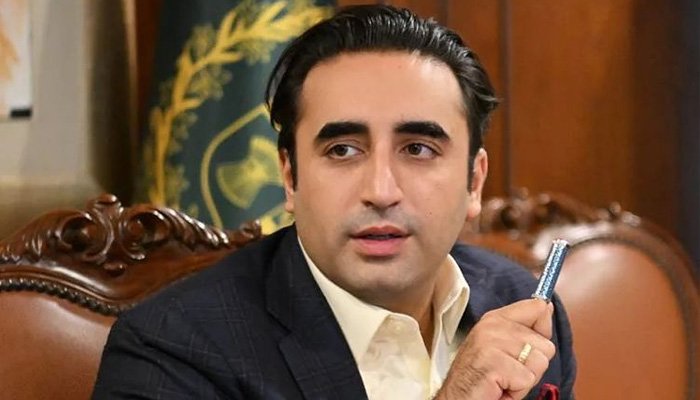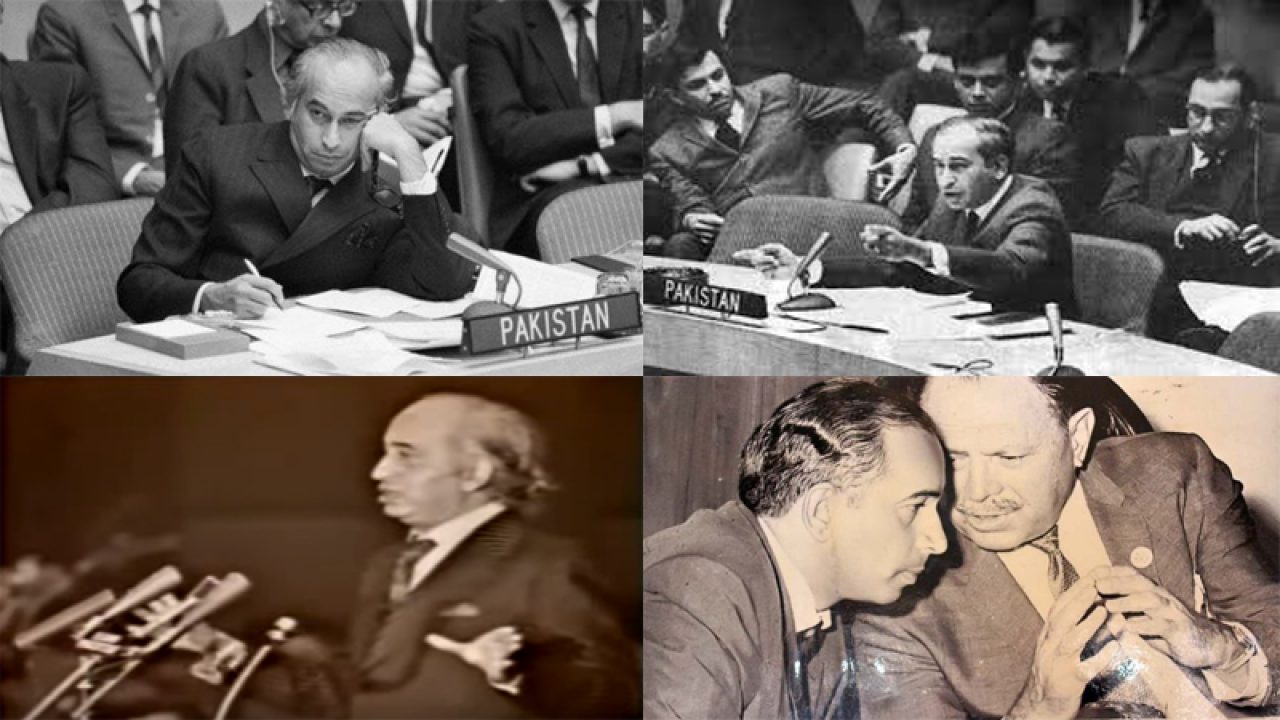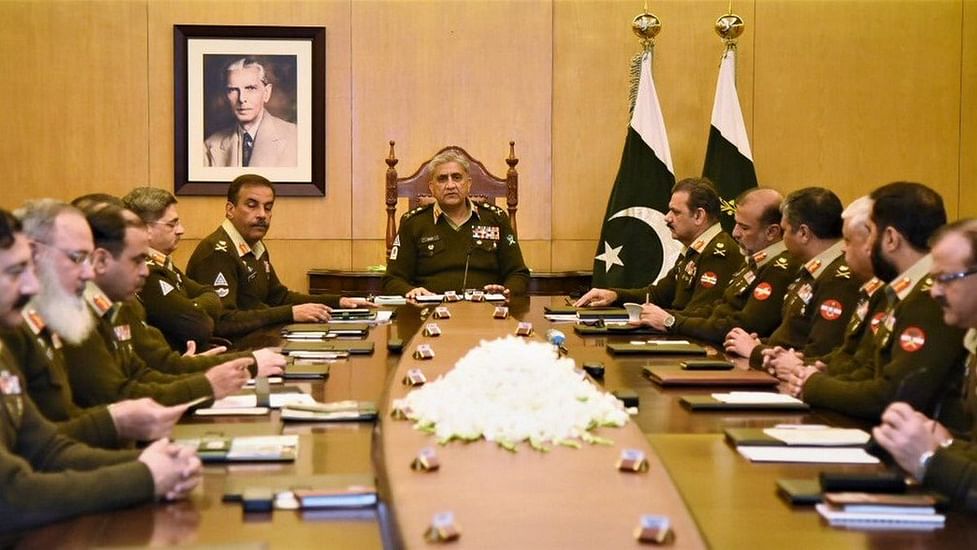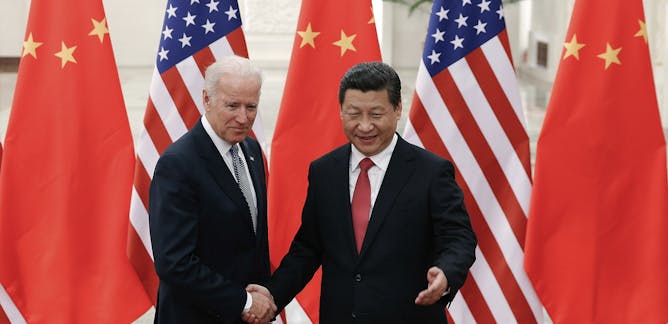Introduction
Following in the footsteps of his grandfather, Zulfiqar Ali Bhutto, heir of Pakistan’s prominent political dynasty, Bilawal Bhutto took oath as the youngest foreign minister in the history of Pakistan, in the government led by Prime Minister Shahbaz Sharif.

Youngest foreign minister
Bilawal Bhutto Zardari became the head of the ministry of foreign affairs at a crucial juncture when Pakistan is in dire need of a stable hand to steer its foreign policy through these choppy waters.

It would be interesting to inquire whether Bilawal Bhutto Zardari has to face the same challenges that his grandfather had to deal with or whether the regional and global political dynamics are glaringly different in the contemporary world.
Zulfiqar Ali Bhutto
Zulfiqar Ali Bhutto became the foreign minister of Pakistan in 1963. This era was marked by the turbulent times of the cold war that lasted for almost 45 years and devoured the lives of millions of people across the globe.
It was a clash of ideologies between the communist Soviet Union and its allies on one hand and the capitalist democracies of the United States, Europe, and its allies on the other hand. The world at that time was faced with the same dilemma of taking one side or the other.
Zulfiqar Ali Bhutto also had many accomplishments during his time as a foreign minister, such as the commencement of China’s relationship with Pakistan and he also became successful in attracting commerce and investment from several countries of the Soviet bloc.

Zulfiqar Ali Bhutto’s wish to be perceived as a pro-people leader, and politician and his personal inclination toward the socialist ideology facilitated him to become the chief strategist behind the forging of the Pak-China relationship that remains to flourish through thick and thin.
His unflinching efforts uplifted Pakistan to a prominent position as a member of the Non-Aligned Movement fostered cordial diplomatic relations with the Arab nationalist-socialist parties and extended his support to the revolutionary, liberationist, and progressivist movements in Africa, Asia, and Latin America.
These were remarkable accomplishments for a country that recently got independent and in an exceedingly polarized world of the Cold War era. These bold, independent initiatives made him a popular leader as well as a reputed foreign minister.
Challenges for Bilawal Bhutto as Foreign Minister
His grandson, Bilawal Bhutto Zardari, has now been appointed as the new foreign minister of Pakistan in some of the most difficult times that this country has gone through.
Time will decide whether Bilawal, like his grandfather, has the same wisdom, capability, and willpower for overcoming these challenges or whether his policies and initiatives will remain overshadowed by petty domestic issues and the dominant security establishment of Pakistan.
Bilawal is confronted with several challenges on multiple levels. Apart from the external challenges, Bilawal Bhutto Zardari has to cope with several domestic challenges. The first and foremost is the formulation of an independent foreign policy and independent decision-making.
Economic-Centric Approach
The foreign policy decisions in the history of Pakistani politics have always been dominated by the will of the security establishment, which has always adopted a security-centric approach while dealing with matters of international relations.
The changing times and global political dynamics have indicated that the establishment in Pakistan is undergoing a paradigmatic shift and is willing to make a gradual transition from the security-centric approach towards an economic-centric approach that was also manifested in the National Security Policy.

This approach would further the cause of making the Pakistani economy export-based, and it also indicates the establishment’s flexibility in its traditional approach and tilt towards a liberal economic worldview.
Time will tell whether Bilawal has the ability to persuade the establishment and succeeds in making the foreign office, its policies, and initiatives independent, or whether they will again be driven through the hands of the establishment.
While taking into account the external challenges that the new foreign minister has to face, it is vital to know about the paradigmatic shift taking place in the world.
Establishment in Pakistan
Drastic developments are taking place in the international political arenas of power. The global power structure is shifting from a multipolar world to a non-polar world where third-world countries like Pakistan are stuck in a dilemma to choose sides between the power blocs.
Choosing the wrong side may result in daunting problems for the other power, consequently leading the country, on the receiving end, towards troubled shores. The establishment in Pakistan is also split regarding Pakistan’s tilt towards certain nations.

Some prefer to join the US bloc as it is a major contributor in providing foreign aid while others want to forge friendly relations with the emerging powers like China and Russia in the neighborhood while considering them the inevitable global hegemonic powers of the future. These factors have a major influence on the formulation of foreign policies.
Pakistan Diplomatic Goals
Pakistan has to pursue its diplomatic goals in a troubled regional and global environment marked by several features that include:
- Rising East-West frictions
- Rapidly increasing Islamophobia
- The rising preoccupation of big powers with domestic challenges
- Continuous technology and trade wars due to the strategic competition between China and the US
- A distressing rules-based international order
- Attempts by regional and other powers to reshape the rules of the global game in their neighborhoods.
Now it would be up to Bilawal Bhutto Zardari whether he would choose a power bloc, or whether, like his grandfather, he would take Pakistan towards the neutral zone in the global power spectrum.
The key areas that will be the focus of Pakistan’s foreign policy in the upcoming year are relations with the United States and China while navigating the Sino-US conflict, tackling the uncertainties of Afghanistan, coping with the hostile attitude of the Indian leadership, and balancing ties between the strategic ally Saudi Arabia and problematic neighboring Iran.
A major challenge that the newly appointed foreign minister needs to undertake is the repairing of strained ties with the west, mainly with the United States, as the former premier’s visit to Russia during the Russia-Ukraine conflict, and Pakistan’s ever-increasing inclination towards China.
The recent controversy surrounding the diplomatic cable for ousting Imran khan’s government and America’s tilt towards the strengthening of India’s strategic and military capabilities seemed to have damaged Islamabad’s relationship with Washington.
America’s Growing Relationships with India
America’s growing economic and strategic relationships with India have further exacerbated the problem, making India a partner in the region to project as a counterweight to China.

Turning a blind eye to the brutalities in Indian-occupied Kashmir by Washington also has implications that will not only magnify Pakistan’s security challenge but will also intensify the regional strategic imbalance.
The newly formed government has indicated that it is eager to engage with the Biden administration in Washington. Moving forward through these delicate situations, Pakistan needs a well-balanced foreign policy to make progress on this front.
The Bhutto Family

Historically, the Bhutto family, like Zulfiqar Ali Bhutto and Benazir Bhutto, enjoyed a good reputation among the Democrats in Washington as they reflected a democratic and liberal outlook. It would be a great opportunity, being the scion of Bhutto’s family, to improve the Pak-US relationship using this reputation as leverage.
CPEC Project
Pakistan’s ties with Beijing will remain its utmost priority. Although the addition of an economic dimension to its long-standing strategic relations has further cemented Pak-China relations, constant consultations and high-level engagements are required to keep these ties on a positive trajectory.

Negotiations on the CPEC project were initiated by President Zardari while the Pakistan People’s Party was in power. The project was on track until the last government made Beijing unhappy about certain areas in the second phase of the project.
The Chinese concerns revolved around simplifying cumbersome procedures of bureaucratic approval for the investors, promoting more business-to-business cooperation, and rectification of the issue of deferred payments to IPPs and especially the security of Chinese personnel operating and working in Pakistan.
The new foreign minister has the chance to address these issues immediately as CPEC is crucial for the progress and development of this country, strategically and economically. Pakistan also needs close coordination with China on key issues.
Sino-US Relations
Pakistan wants to mend its relations with the United States but these ties will inevitably be affected by Washington’s confrontation with China. Although Islamabad seeks to avoid being sucked into this big power’s competition yet this is easier said than done.
So long as Sino-US relations remain unstable, it will have a direct impact on Pakistan’s effort to reset its ties with the United States, especially as the containment of China is a top priority for the American government in this contemporary era.

Fascist Modi Government
Managing relations with the increasingly hostile India will be an arduous challenge, specifically as the fascist Modi government in India is hell-bent on the continuation of its repressive policy in Indian-occupied Kashmir, defaming Pakistan as the terror-sponsoring country in the free world.

It will be using its influence to pressurize Pakistan through FATF and the United Nations, pushing forward with the policy of changing demographics in the Kashmir valley and discarding protests by the Pakistani government.
The hope of a rapprochement by the Pakistani establishment through back-channel diplomacy also resulted in a disappointment as no improvement could be made apart from re-commitment from India and Pakistan to observe a cease-fire on the LOC.
Under the Modi regime, the prospect of normalization of relations seems a remote possibility and will also prove to be a formidable challenge for him to persuade the establishment to show more flexibility and to open up more channels and avenues of diplomacy with India.
As Afghanistan is also emerging as a regional challenge and a major problem for Pakistan, the recent humanitarian crisis, refugees’ migration problem, and cross-border terrorist attacks indicate that ties with the Afghan Taliban are not that ideal.
The withdrawal of US forces from Afghanistan and subsequent takeover of the government by the Taliban forces have reduced Islamabad’s importance to Washington for now when there are growing voices in the USA blaming Pakistan for its military failure in Afghanistan.
The principal basis for engagement and discussions, in their frequently turbulent relations, was Afghanistan. The challenge is to find a basis for it. The previous foreign minister could not convince the world powers to provide humanitarian aid to Afghanistan.
Bilawal must address these issues immediately by utilizing its diplomatic capital to mobilize international help for Afghanistan, otherwise the crisis would have a spillover effect on Pakistan, instigating another migration of millions of Afghans to Pakistan, creating a large-scale refugee crisis and law and order problems.
He also needs to work hard to forge result-oriented policies regarding US relations with Pakistan and to quench Pakistan’s desire to expand its trade ties on a stronger export base.
Bilawal Bhutto must focus on getting leverage to ease tension between the rivals while balancing relations with Saudi Arabia and Iran.
Pakistan should utilize its political relations with Saudi Arabia to attract investments from there through a comprehensive strategy, as Crown Prince Mohammed bin Salman wants to use Saudi Arabia’s economic power to extend his country’s diplomatic power by making strategic investments.
Pakistan also needs good relations due to the presence of millions of overseas Pakistanis residing in Saudi Arabia and other Arab states that are under the influence of Saudi crown prince MBS.
Close consultations on regional issues and bilateral dialogues, especially in Afghanistan, are also required to cement relations with Iran. It will be a challenge for the newly appointed foreign minister to maintain this delicate balance while tackling these states.
With a prudent approach and the right messaging, the new government can rapidly show some progress in coping with the challenging situation on the foreign policy front.
The key challenge for Bilawal Bhutto Zardari is in understanding the changing political dynamics of an unpredictable world, particularly unilateral actions by populist leaders and big powers that have direct implications for Pakistan’s foreign diplomacy.
Bilawal Bhutto Zardari has to match Pakistan’s capital and its diplomatic resources with its goals while evolving his foreign policy strategy and only aligning means and ends will make a strategy effective. He must make policies to raise Pakistan’s diplomatic game by increasing outreach to other states and key actors that are beyond the government to secure Pakistan’s foreign policy goals.
Moreover, shifting the approach from making short-term policies for petty political gains to a long-term strategy would further help the country towards a gradual but decisive advantage in the global echelons of power. People have high expectations from Bilawal Bhutto Zardari as he is the grandson of Zulfiqar Ali Bhutto and must have acquired some of his qualities to make better foreign policies that will play a part in the prosperity of the country.
Most importantly, he would have to work in close collaboration with the security establishment and must have the skills to convince them of his decisions and initiatives; otherwise, the people’s desire and aspiration for a strong, result-oriented, and independent foreign policy will remain a distant dream and Pakistan will remain in the abysmal quagmire of problems for many years to come.






